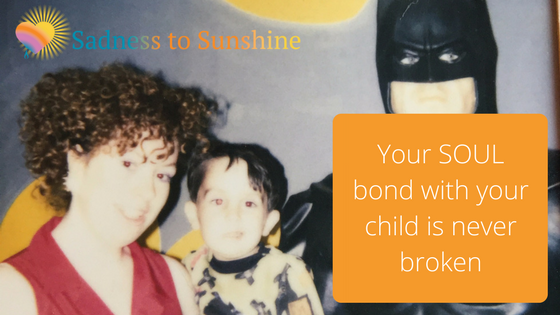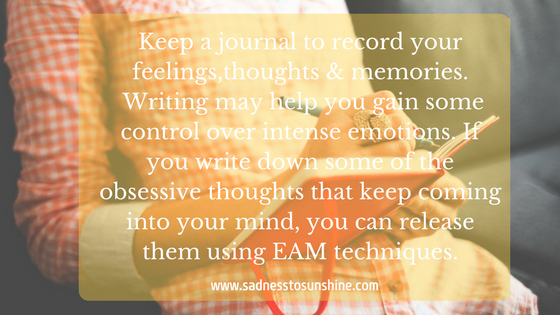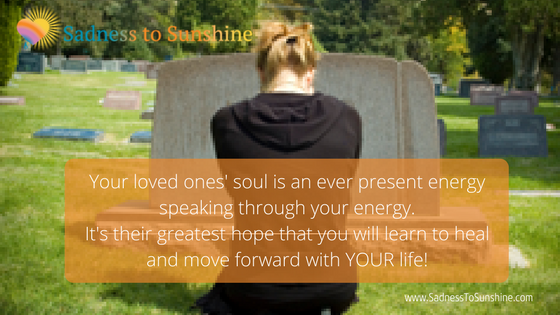
When your baby or child dies, you feel such an intense loss like no other and of course, you just want to hold them in your arms again and you cannot imagine anything that can fill this void, even another child in your deepest moments of grief.
From the moment you get pregnant you have such plans, even if you don't realise it at the time. Your mind automatically creates a whole vision for a life together with your child. However, if you lose that child and the future you planned together (even if you had not directly thought about it in this way) doesn’t pan out as hoped, finding ways to maintain a connection with your child is really important, it helps lessen your feelings of loss. You may have physically lost them, but they are still part of you and will always be in your heart.
Journaling is a great way to feel a connection with your child, you could journal to them telling them you miss them, what their brother or sister is doing (if there are siblings) or whatever you want to communicate to them. You can also use journaling as a cathartic exercise to let go of many other unhealthy thoughts and feelings so you do not hold onto this negativity.

Say a prayer to them, this can sometimes help, whether or not you are religious. I was christened as a baby, but did not come from a religious family, I only went to church for the odd ceremony when I was in the Brownies & Guides, but when I lost Adam it gave me comfort to think that he was in Heaven (a better place is what I thought just to make me feel more at peace). This did not come from a religious perspective, but from a similar place to when you would say something to a young child, like “Grandma is up in the sky she has gone to Heaven.”
Sit and hold something that belonged to your child, a favourite toy, piece of clothing or a photo and just feel your connection to them in your heart, remember any good times you had with them. If you cry this is just a release mechanism of your body so it is perfectly natural, you will find out later about learning how to disconnect from any negative upsetting feelings and how to connect with good feelings again with your child.
You can do the same, by visiting favourite places of your child or where you used to spend time together, to help you process your thoughts and feelings and maintain a way of being connected in a positive way.
In the early days, I used to visit the graveside to feel close to Adam, as my logical mind said that was where he physically was, but then I realised, it was just what was left of his body there, his soul had moved on to a better place. He was still with me every day in my heart and I gradually spent less and less time there, and now I only go occasionally. There are all manner of other times, places and things which will suddenly remind me of him, as your child will always be part of you whatever you do and wherever you go.

Here are 9 steps I learned to initiate new life after a loss:
- We have to understand our fears and pain so we can heal them. Start listening to your grief and write down everything it tells you. Every day for 7 days, just write it, reflect on it. Explore it as a witness, a watcher and observer, but not experiencing it. At the end of the day, what did you learn about your grief that you didn’t know before? Find out what lives inside of you so the fog can lift.
- Choose a room in your house and look at it from the present moment. Does it reflect your life today? Is it a part of who you are becoming? Or has it stayed in the past? Does your house look like a ghost? If the answer is yes, even partially, start changing the pictures in your frames. Move your furniture around. Change your living space to reflect your present life and not the one you left behind.
- Take one very small step a day. Go to work a new way. Stop calling back someone you no longer want in your life. Change your hair or something else; just think small changes at first. Remember, do not add an overwhelming goal to this experience.
- Find a good friend you trust, and share your story of loss with him or her and ask them to reflect back what they are hearing. Ask them to see you in this experience and validate it. This is one of the most important steps in healing. Our pain needs to be witnessed before we can start the healing process.
- Go to a physical place in your life that has been a source of strength and inspiration. That place could be inside your house, it can be in your garden or at the beach. Where is that place that creates the need inside you to think bigger, where you daydream, where you are able to get in touch with the part of you that has been sitting outside of the fog? Where do you get a break from the intense sorrow of the loss? Get yourself physically there on a regular basis.
- You have the power to change your life in a spectacular way simply by changing your thought patterns. The best way to control your thoughts is to control your words. Words create a pattern of belief within the brain that each of us goes over, again and again, every single day. For instance, how often do you use words such as angry, overwhelmed, sad, unlucky, or failure to describe yourself? And when you do, how does it make you feel? These quick fixes numb the mind and distract us, but they don’t lead to authentic happiness and success in life. So be aware when you are using these kinds of words and think carefully about what words you could choose to use instead.
- The truth about starting over is that it doesn’t just happen on its own. Your next chapter in life, your second ‘firsts’, won’t just show up at your door with a big smile. The truth is - it’s all on you. Happiness lives inside of us. It is not dictated by circumstances. I want you to hold this truth in your heart: when it’s your time to go, you won’t wish you had spent more time grieving; you’ll wish you had spent more time living. The further away we move from being the person we were when a loss occurred, the less pain we experience. This type of shift of identity can only happen when the brain is experiencing new habits and routines.
- Grieving and living go hand in hand. It is human to survive, by adapting and evolving. Grieving is a natural part of how we evolve as individuals, to respond to the challenges we face. It’s amazing, the way we can be catapulted toward life, even in the midst of loss. Loss creates an unbelievable amount of space for life to enter in. What you feel as emptiness is life’s new home, and what you feel as loneliness is the urge to hold life’s hand again. Don’t wait for time to heal you. Time does not heal all wounds; only action can do that, so make sure that you cry and laugh all in one day.
- Get your brain ready to build a new life. Imagine that it is possible to create a brand-new life from the inside out. The secret I want to share with you is that your brain is so adaptive and so powerful, that your own thoughts during a painful period, can lead you to experience a remarkable, bright future. Even though you are confused and scared, there is a way out of this temporary cloud and onto a powerful bridge. But you must say new words, have new thoughts, make new friends and add new experiences if you want to discover your new identity. Staying in the past and just going over the events of your loss, will not help you rebuild your new life and discover your new identity. This won’t always be easy, but it will definitely be worth it.
-
I'd love to know what helped you, let us know on the Facebook group. Join Sadness to Sunshine support group for bereaved parents
The loss of a child is the most devastating experience a parent can face and missing the child never goes away. A piece of yourself is lost and your future is forever changed. The age of the child at the time of death does not lessen the hurt or devastation. It feels completely unnatural for a child to die before his or her parents. Many grieving parents question whether life will hold any meaning for them and wonder how they will survive the pain of their loss. Parents describe the feeling as having a hole in their heart that will never heal and might blame themselves. Or they might be angry with their spouse, the medical profession, God, or the government.
Parents often feel alone and isolated in their grief, as friends and relatives are often at a loss, as to what to say. But it is important to talk to people who understand the loss. This may be family, friends, clergy, therapists, or support groups. Everyone suffers a loss in different ways depending upon their beliefs, culture, family history, and relationship with the person who died. It doesn't mean that others care less if they mourn differently than you do. Grief can also vary greatly depending on how the child died. While some losses are less visible, such as miscarriage, other experiences of loss are more traumatic, such as an accident, illness, murder or death during a war.
Please know that you can live a happy, joyful life again if you truly process what has happened and subsequently release the negative thoughts & feelings and align with positive ones. I am living proof that this is possible.
My life today is truly remarkable in ways I never thought possible. What has taken place since I lost Adam, I could have never imagined. I want this for you too; an amazing breath-taking life. All you need to do is take one small step at a time.
Want to know more?
Book a Call with me and discover how you could move from Sadness to Sunshine